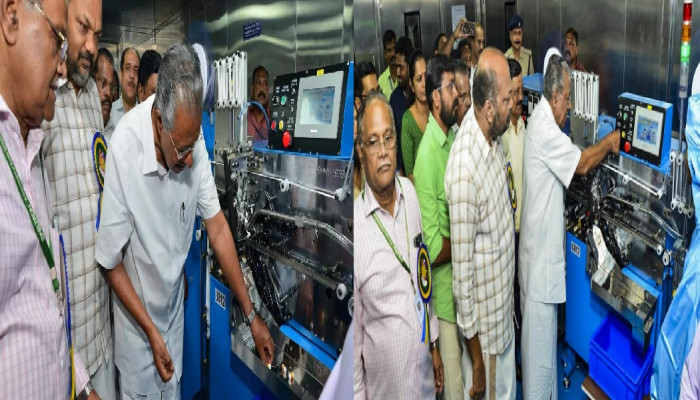Keltron establishes India’s first super-capacitor plant in Kannur
- In Reports
- 05:38 PM, Oct 01, 2024
- Myind Staff
In its journey toward establishing itself as a global manufacturer of electronic tools, Keltron Component Complex Limited (KCCL) has put in place India’s first super-capacitor plant at Kannur. The first instalment of the ₹42 crore plan has commenced with an outlay of Rs 18 crore. It includes, among others, dry room infrastructure and production capability to produce 2,100 capacitors per day. It was reported that the program is being executed together with the Indian Space Research Organization.
Launching the facility on Tuesday, Chief Minister Pinarayi Vijayan said, in order to make Kerala an electronic hardware manufacturing centre, the Government has decided to make an additional investment of rupees One thousand crores.
Further on this agenda, he explained, there is also a need for Increased Productivity and modernisation of Keltron. India’s first electronic equipment producing unit, Keltron, can be of utmost contribution in this direction.
The state government has announced a ₹395 crore master plan to modernise Keltron and implement a scheme to enhance the Karakulam unit's capabilities in producing power electronics products.
As part of the initiative, an IT corridor will be established to connect national highways, and plans are underway to set up an electronics hardware manufacturing facility in Amballur, Ernakulam. The Chief Minister noted that this will create an ecosystem for electronic components, benefiting existing electronics manufacturing companies.
Once fully operational, the new super-capacitor production facility is expected to generate an annual turnover of ₹22 crore and a profit of ₹3 crore by its fourth year. This initiative aims to position KCCL as a leading manufacturer in the global electronics component industry.
A super-capacitor is a high-capacity capacitor that has a capacitance significantly higher than that of standard capacitors but with lower voltage limits. These devices can store up to 100 times more energy per unit volume or mass compared to electrolytic capacitors. They are utilised in various applications, including automotive, renewable energy, and electronics.
Industries that will benefit from this initiative include transportation, consumer electronics, renewable energy, defence equipment, space launch vehicles, and industrial sectors.







Comments